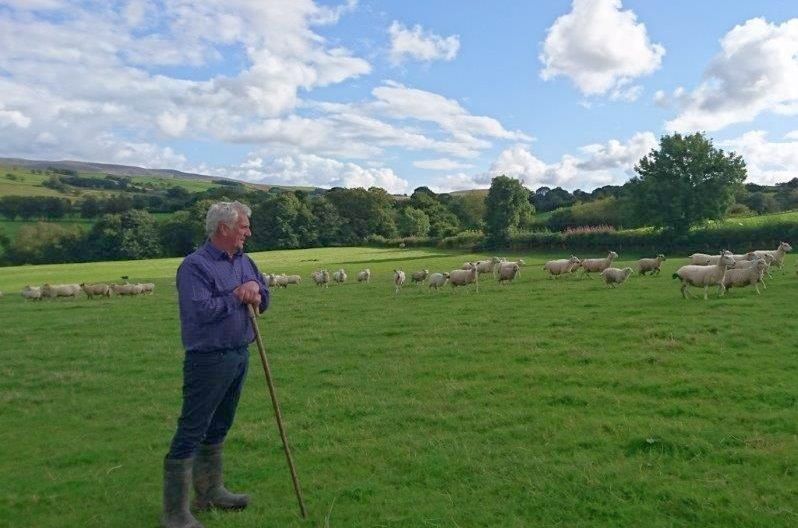
Removing the EU's direct payments will have a "massive impact" on the Welsh farming industry and the well-being of Wales, according to a farming union.
The Welsh government is proposing to replace direct support with payments for delivering environmental goods, accompanied by an overarching scheme aimed at farm business improvement and development.
The two new "large and flexible" schemes will replace Basic Payment Scheme (BPS), Glastir and other parts of the Rural Development Programme.
The programme will consist of the Economic Resilience Scheme, which will provide investment to farmers and their supply chains to increase competitiveness and make improvements in food productivity.
Examples of what the money could be used for include buying machinery, or helping with marketing support.
The second fund, the Public Goods Scheme, will provide a new income stream to farmers delivering public goods from the land.
It will enable them to help address challenges such as climate change mitigation, habitat loss, poor air and water quality.
NFU Cymru has highlighted cautions over the government's proposals, saying the move will have a "massive impact" on the industry.
NFU Cymru President, John Davies said: “Removing direct payments would have a massive impact on the Welsh agricultural industry and because farming is so intrinsically linked to the well-being of Wales, it would consequently have a similarly detrimental effect on the people and communities of Wales.
“The Welsh government’s continued stance that Wales should not lose a penny as a result of Brexit is, of course, to be commended.”
'Radical change'
The proposals will constitute the "most radical change" to Welsh farm policies since 2005, and is a "world away" from the policies previously in place from 1947 onwards, according to the Farmers' Union of Wales (FUW).
FUW President, Glyn Roberts said he has "numerous concerns" over what is being proposed.
“Amongst these are the fact that the EU have recently announced their commitment to providing the farmers against which we will compete with ongoing direct support at levels similar to those currently in place,” said Mr Roberts.
“We also need to be aware of policy proposals in other parts of the UK and make sure Welsh policies do not place our farmers at a disadvantage.”
The Scottish Government has recently reiterated its commitment to recognising topographical and other handicaps faced by Scottish farmers and providing support payments which recognise these.
“Given we have a similar proportion of disadvantaged land to Scotland, it would be unacceptable if our own government placed us at a disadvantage to our Scottish counterparts,” he said.
Welsh farmers have been urged to reply to the consultation, described as the "the most significant for a generation".
The Welsh government intends to organise a number of events during which farmers will be able to learn more about the proposals and ask questions, before the deadline at the end of October.
A white paper setting out detailed proposals will be published next spring, and Bill will be published before the end of this Assembly session to make provision for the reform.
